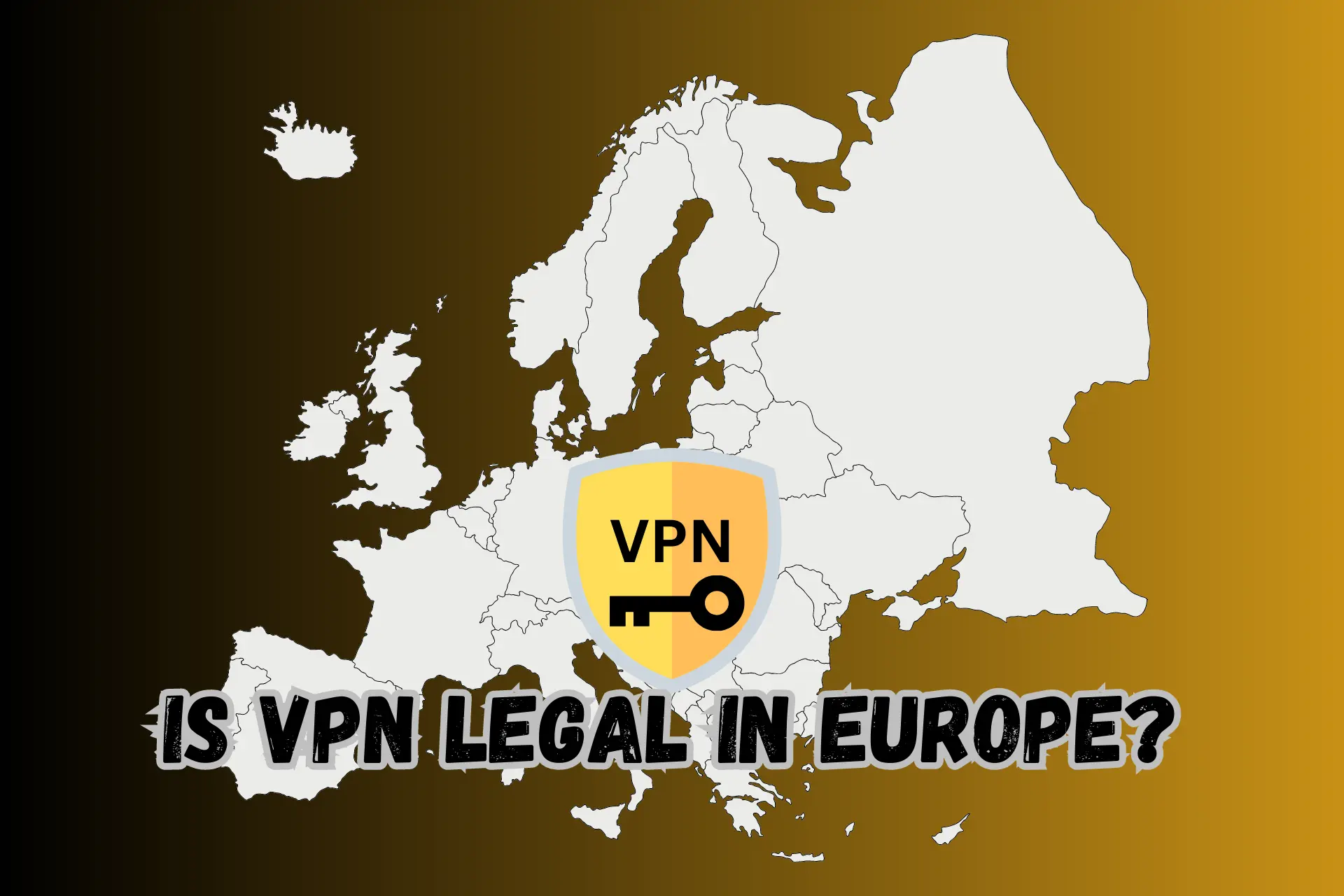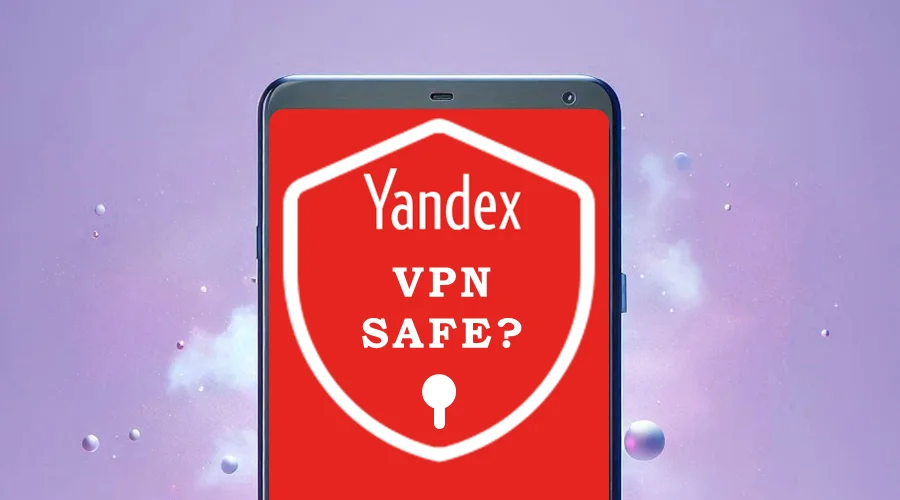Is VPN Legal In Europe? [All You Need to Know]
7 min. read
Updated on
Read our disclosure page to find out how can you help VPNCentral sustain the editorial team Read more

Are you planning to travel to Europe and are concerned about internet security there?
Although most countries in the region are big on preserving citizens’ privacy, there are also places where ISPs have to keep track of users’ activity, and even worse, restrict access to popular online services.
Moreover, when traveling you may no longer have access to your favorite local TV channels or geo-restricted apps and games.
If so, you probably consider using a VPN to get past these inconveniences.
So it’s only natural to wonder whether VPNs are legal or not in Europe. Well, you’re in luck cause we looked into it and broke down everything you need to know.
In this article, we will explore the legality of VPNs in Europe and explain why it’s a really good idea to use one.
So, buckle up, and let’s dive into it right away.
Is VPN legal in Europe?
Yes, VPN is legal in most countries in Europe.
Europe does not have a general law governing VPN use, but individual countries have regulations that apply to VPNs.
For instance, Russia and Belarus have banned VPN usage to stop citizens from accessing unaccepted sites.
In contrast, since they have pro-user privacy laws, the countries in the European Union do not have any regulations against VPN usage.
That said, VPNs for illegal activities, such as copyright infringement, identity theft, and cybercrime, are not permitted and are punishable by law in all countries of Europe.
Moreover, these activities are punishable even without VPN.
Below are the European countries that regulate the use of virtual private networks.
⛔ European countries that ban VPN
While VPN is legal in most parts of Europe, some cracked down on its usage.
Here are parts of Europe where VPN is illegal:
Russia
Russia passed a law in November 2017 prohibiting VPNs, which sparked concerns about the country’s digital freedom.
This action was just one of several measures to enhance government control over the Internet.
In 2019, the government also instructed foreign VPN providers to block access to certain blacklisted sites in an attempt to deny Russians access to their content.
This attempt made some providers like TorGuard discontinue their services in the country.
In addition, using a VPN in Russia is punishable by fines of 300,000 RUB ($5,100) for the user and 700,000 RUB ($12,000) for the service provider.
Belarus
In 2016, the country took action to outlaw all internet anonymizers, including VPNs, proxies, and Tor.
In Belarus, digital freedom has deteriorated over time, as the government has impeded access, suppressed free speech, and enforced these rules strictly among its populace.
Anyone found using a VPN in Belarus currently faces an undisclosed fine.
Turkey
Turkey, another country with a history of strict censorship, has taken measures to ban and prohibit the use of VPNs since 2018.
This action is part of broader censorship laws that limit access to specific information and platforms.
Furthermore, over the past 12 years, the ruling junta has gradually expanded its authority over media channels to continue.
These channels allow only propaganda-based broadcasting operations.
As a result, Turkey currently blocks thousands of sites and platforms, including social media channels, cloud storage platforms, and even VPNs.
It’s worth noting that while the use of VPNs may be banned or restricted in these countries, many people still use them, risking fines.
However, in the rest of the European countries, the legality of VPNs is generally based on the principle of freedom of expression and the right to privacy.
VPNs provide an additional layer of protection by encrypting internet traffic and preventing ISPs from monitoring user activity.
Why is it a good idea to use a VPN in Europe?
There are many benefits to using a VPN, particularly for businesses and individuals who value online privacy and security.
Some of the main advantages of using a VPN in parts of Europe where it is legal include the following:
Online privacy
A VPN encrypts your internet traffic, allowing you to browse the internet with greater anonymity and privacy from prying eyes.
How does it work?
Your data is scrambled into a code known as ciphertext.
For instance, if you type best eatery in Europe into Google, your VPN will change it to something like this:
6yRFu4IGrtm4mheQpwBo+h55vbzlM/hdNlqgzHGVA+4=So even if your ISP tries to monitor your browsing history, it will hit this blank wall of encryption.
However, the proper decryption key will restore it to its original form.
This will prevent unwanted parties from tracking sensitive information like credit card details and private online messages.
As a result, it will be more challenging for hackers or other bad guys to intercept and steal your personal information.
Therefore, you will be shielded from your ISP, government agencies, and hackers if you use a VPN server from a privacy-focused country.
Access to restricted content
Many European countries have online content restrictions that limit access to certain websites, social media platforms, and streaming services.
For example, Hulu, US Netflix, Viki, and other streaming platforms are not accessible to European countries.
With a VPN, you can bypass these restrictions by changing your location to another one where the content is available and enjoy endless streaming.
Enhanced security
Public networks are WiFi networks that are accessible to the general public, such as coffee shops, airports, hotels, and libraries.
They are not secure due to the lack of encryption, which makes them open to man-in-the-middle attacks and network spoofing.
In addition, they are potential for malicious users to exploit your important data when you connect to it.
However, even in Europe, you can stay safe when using public networks.
All you need to do is to use a reliable and updated VPN.
What the VPN does when you securely connect to them is to prevent cyber criminals from intercepting your digital footprints.
Avoid ISP throttling
European Internet service providers such as Vodafone and Telenor are known to slow down internet speeds.
They do this for certain online activities, such as streaming videos or downloading large files.
Also, it mostly happens during peak Internet traffic hours.
However, with a VPN, you can bypass ISP speed throttling.
What the VPN does is hide your IP and traffic so your ISP won’t know whether you stream, game, or chat.
Secure file sharing
When sharing files online, there is a risk of exposing personal or sensitive information, especially if you use peer-to-peer traffic.
This not only includes media files, but everything you share online, such as financial data, medical records, or confidential business documents.
However, a VPN provides a secure solution.
As already mentioned, it encrypts data, making it unreadable to unauthorized individuals who intercept it.
For example, if you’re sending important files to someone outside your organization, a VPN ensures nobody can see or change those files while they’re being sent.
It’s like putting your files in a sealed envelope that can only be opened by the person you’re sending them to, even if others try to peek.
Additionally, a VPN masks your IP address, preserving anonymity and preventing tracking of online activities.
Summary
The legality of VPNs in Europe is a complex issue that varies from country to country.
While some European countries ban and block VPNs, others have no regulations.
Despite the legal challenges, using a reliable VPN remains an essential tool for online privacy and security, especially in this digital age where cyber threats are rampant.
However, it is essential to note that the use of VPNs should be done responsibly according to the laws and regulations of the country you are in.









User forum
0 messages